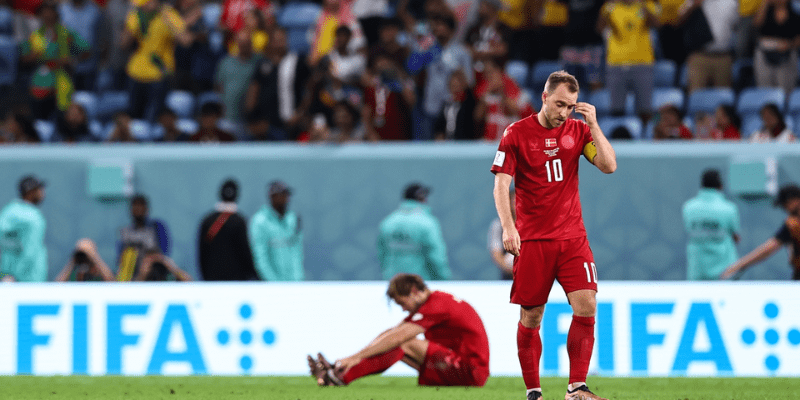Arsenal supporters have long embraced a badge of identity few outsiders fully grasp: Gooners. But where did this nickname originate? Why don’t fans simply call themselves “Gunners”? In this article, HollaBall will journey through history, myth, and fan culture to explain why are Arsenal fans called gooners, and how this name became part of the club’s lore.
The roots: Gunners, Arsenal, and munitions heritage

To understand why are Arsenal fans called gooners, you must first understand the foundational moniker — Gunners. In 1886, workers at the Royal Arsenal armaments factory in Woolwich formed a team that would evolve into Arsenal FC. Because of this direct link to weapon manufacturing, the club took up cannon imagery and the nickname The Gunners early on.
Even after relocating to north London in 1913, Arsenal held onto that identity: red shirts, a cannon badge, and the pride of being the munitions-born club. These symbols became inseparable from the club in fans’ minds, permeating chants, journalism, and identity.
Thus the path to Gooner begins with Gunner — but it’s not a direct transformation. The journey took decades, and the term carries layers of subculture, fan groups, and linguistic evolution.
Theories on how “Gooners” emerged

Multiple competing theories attempt to explain why are Arsenal fans called gooners. While none are proven conclusively, each offers insight into how fan identity and street culture can transform a nickname.
Herbert Chapman’s influence
One popular theory credits legendary manager Herbert Chapman (in charge 1925–1934) with inadvertently inspiring the term. Chapman was larger-than-life, charismatic, and prone to practical jokes. Some claim early fans or journalists playfully twisted Gunners into Gooners in reference to his antics or jest, and the name stuck.
However, there is limited direct evidence of this being the origin. Arsenal’s own official accounts mention Chapman among possible influences, but cannot verify a definitive first use.
Club Programmes and Early Adoption
The first confirmed use of Gooners appeared in an Arsenal matchday programme around 1966. This indicates that by the mid-20th century, the term was already entering official fan discourse. Its inclusion in a club publication marks a key transition — from informal slang to recognized supporter identity.
The hooligan firm link: The “Goon Squad”
A compelling theory ties why are Arsenal fans called gooners to the darker side of fan culture. In the 1970s and ’80s, football hooliganism was rampant. Arsenal had a notorious firm referred to as The Gooners or Goon Squad (a play on “Goon”). As that group’s name became known in tabloids and fan circles, the moniker bled into mainstream support.
Over time, the violent connotation faded and the nickname was reclaimed more broadly by supporters. This narrative is strengthened by the existence of The Gooners firm in historical records.
Rival chants, mocking mispronunciation, and linguistic drift
Some rival fans would mock Arsenal by distorting Gunners into Goons or Gooners. Lingering as a derogatory term, it was reappropriated by dedicated supporters. In a sense, fans turned a taunt into a badge.
Linguistically, Gooner may simply have evolved via dialect or slang as fans sought a personal variation on Gunner. Over time, repetition, chant music, and oral culture molded the spelling and pronunciation into what we use today.
When and how it became widespread

By the 1980s and 1990s, Gooners was firmly embedded in Arsenal fan culture. Fanzines, supporter groups, and chants all adopted the term. The violent firm The Gooners was active in that era, but gradually the nickname divorced itself. edia])
In modern times, Gooner is used globally —. Some younger fans see “gooner” through newer slang lenses, occasionally leading to confusion.
The difference: Gunners vs Gooners
It’s worth clarifying: Gunners refers to the club and its members (players, club identity), while Gooners refers to the fans.
| Term | Application | Connotation |
| Gunners | Players, club, official branding | Military imagery, cannon heritage |
| Gooners | Supporters, fan identity | Subculture, community, pride |
Although linguistically close, the two terms represent different branches of identity. “Gooner” is how fans set themselves apart — not just as followers of Arsenal, but as part of aique tradition.
Cultural significance and fan identity
Calling yourself a Gooner carries emotional weight. It represents:
- Connection across generations: older and younger fans use the same name
- Belonging: it’s a shared identity in chants, forums, and memorabilia
- Reclamation: transforming adversarial or pejorative language into pride
- Brand power: “gooner” appears in fan groups, merchandise, social media hashtags
For instance, Arsenal’s official communications once ran features titled Why Are Arsenal Fans Called Gooners, acknowledging the name’s integral role in club culture.
Likewise, global fan groups — including the official LGBT+ supporters’ branch known as “Gay Gooners” — use the moniker to assert identity and inclusivity in the fanbase.
At the same time, the term has sparked jokes or confusion — notably a recent satirical article titled “A Tale Of Two Gooners” poked fun at the name’s modern slang connotations.
Why the nickname still matters today
One might ask: if Gooners has murky origins, why cling to it? Because its value lies less in etymology and more in community.
- Emotional resonance: Fans don’t just support a team; they are Gooners
- Continuity: The name links past and present, WWI-era Woolwich to the Emirates
- Identity outside rivalry: “Gooner” isn’t about Tottenham or Chelsea — it’s self-declared
- Global appeal: Even in countries far, Instagram tags (#COYG, #Gooner), and fan culture, making it moren a name — it’s part of communal ritual.
Final Thoughts
Why are Arsenal fans called gooners? While there’s no single proven origin, the nickname emerges. From the Gunners born in a munitions factory to hooligan firms, programme pages, and chant tradition, Gooner has become the living symbol of Arsenal fandom.
Now that you know the roots behind this iconic name, HollaBall encourages you to wear it proudly — whether at the Emirates, watching online, or chanting in your local pub. Embrace what Gooner means: identity, passion, heritage. Want to dive deeper into Arsenal’s nicknames, chants, or fan culture? Just say the word — HollaBall is with you, ready to explore.






